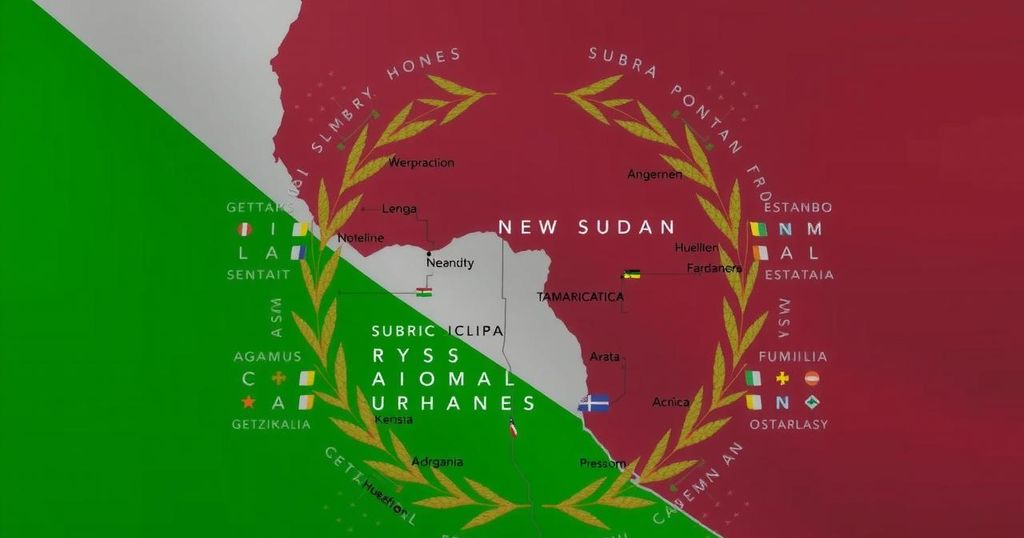World news
AFP, AFRICA, BRITAIN, CEASEFIRE, CONFLICT, CONFLICT RESOLUTION, DAVID LAMMY, DMITRY POLYANSKIY, ENERGY INFRASTRUCTURE, LAM, LAMMY, MOHAMED HAMDAN DAGLO, NORTH AMERICA, RAPID SUPPORT FORCES, RSF, RUSSIA-UKRAINE WAR, SECURITY COUNCIL, SIERRA LEONE, SUDAN, UN, UN SECURITY COUNCIL, UNITED NATIONS, UNITED STATES, US, WAR
Marisol Gonzalez
0 Comments
Russia Vetoes UN Ceasefire Resolution Amid Ongoing Conflict in Sudan
On November 18, 2024, Russia vetoed a UN resolution calling for a ceasefire in Sudan amid an ongoing conflict between rival military factions. The resolution, drafted by Britain and Sierra Leone, sought to halt hostilities and facilitate peace talks. The veto drew condemnation from British officials and highlighted ongoing divisions within the UN Security Council, as the conflict continues to inflict severe humanitarian consequences in Sudan.
On November 18, 2024, Russia exercised its veto power against a United Nations Security Council resolution aimed at halting hostilities in Sudan, where a conflict between rival military factions has persisted since April 2023. The proposed resolution, drafted by Britain and Sierra Leone, urged immediate cessation of fighting and recommencement of negotiations for a ceasefire. The British Foreign Secretary, David Lammy, condemned Russia’s actions as a significant obstruction to global consensus on the issue.
The ongoing violence has resulted in tens of thousands of fatalities, displacing over 11 million individuals, including approximately 3.1 million refugees. Amidst intensifying hostilities, the situation has become increasingly dire, with 26 million people currently facing severe food insecurity. Following the vote, Russia’s Deputy UN Ambassador, Dmitry Polyanskiy, criticized the resolution for lacking recognition of Sudan’s legitimate authorities, highlighting Russia’s evolving stance towards General Abdel Fattah Al Burhan, the leader of the regular army amid the conflict. Despite previous abstentions in related votes, the recent veto indicates a shift in Russia’s alignment within the Sudanese conflict.
The draft resolution sought to prevent external interference that exacerbates instability and called for the protection of civilians and unimpeded humanitarian access throughout Sudan. The resolution’s defeat raises questions about the Security Council’s overall effectiveness in addressing ongoing global crises, particularly the rising tensions resulting from geopolitical strife between major powers.
The ongoing conflict in Sudan stems from a power struggle between two military leaders, General Abdel Fattah Al Burhan and General Mohamed Hamdan Daglo. This turmoil has persisted since a coup in 2021 and has exacerbated an already fragile humanitarian situation, with millions displaced and in desperate need of assistance. The UN Security Council’s response to such crises has been hindered by significant divisions among its permanent members, notably between the United States and Russia. Russia’s recent veto of the ceasefire resolution illustrates these divisions and its newfound alignment with the Sudanese military.
In summary, Russia’s veto of the UN Security Council resolution to cease hostilities in Sudan underscores the complexities of international intervention in conflict zones and the persisting geopolitical tensions. With tens of thousands dead and millions displaced, the situation continues to deteriorate, challenging the effectiveness of the Security Council in providing viable solutions. The implications of such decisions affect not only Sudan but also highlight the broader challenges facing the international community in addressing humanitarian crises.
Original Source: jordantimes.com




Post Comment